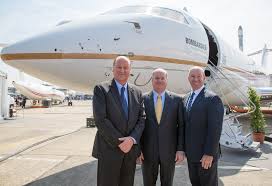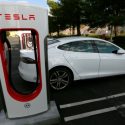EU Sets Conditions For Single Market Access to Britain
EU sets conditions for single market access to Britain.
European Union leaders drew a stark line along the British Channel on Wednesday, telling the U.K. that it cannot keep valuable business links with its former continental partners in a seamless single EU market, if it doesn’t also accept European workers.
The leaders produced no clear route forward for their shaken union after an unusual and emotionally charged summit, but agreed they must make it more relevant to citizens and keep it from disintegrating after Britain’s unprecedented vote to leave.
The 27 remaining presidents, chancellors and prime ministers said they are “absolutely determined to remain united”, European Council president Donald Tusk said.
They met without Britain for the first time, but the UK was top of the agenda. The leaders emerged insisting the “four freedoms” central to European unity are indivisible: the free movement of people, services, goods and finances.
The EU leaders were focusing Wednesday on how to deal with the rest of the continent now that Britain is leaving. There’s a widespread sense that the post-war project to foster peace via trade has become a bureaucratic, undemocratic behemoth with little meaning for its 500 million citizens. The initial EU founding nations in the West lean towards a tighter, closer union, while newer nations in the east want to keep more control with national governments – notably of their borders.
Other EU countries are now facing calls for referendums on quitting the bloc. Tusk convened a special EU summit on September 16 in Slovakia’s capital to work out a plan forward to keep the EU united.
German Chancellor Angela Merkel said the lesson from Britain’s departure isn’t necessarily either deeper integration or returning more powers to national governments. She said Wednesday: “this is not about more or less Europe as a principle, but about achieving results better”. She said that combating youth unemployment, for example, could involve both scrapping EU directives and deepening European cooperation.
Hollande said one measure he wants to be considered in Bratislava is making it possible for all young people in the EU to have the option of studying or spending time in another member country of the bloc. “The coming weeks will be decisive,” Hollande said. “Europe must show its solidity.”
The shock British vote has roiled markets and had an impact on Europe and beyond. It overshadowed all the discussions Wednesday in Brussels, because it will rob the EU of its richest financial market, biggest military power, and a diplomatic giant. It could also prompt an unravelling of the UK.
Scotland’s First Minister Nicola Sturgeon met Wednesday in Brussels with European Parliament President Martin Schulz and is meeting later with the leader of the EU executive, Commission President Jean-Claude Juncker. Scottish voters overwhelmingly chose to remain in the European Union but were drowned out by English voters. Sturgeon has indicated there may be a new referendum on Scottish independence.
“It was a good opportunity for me to set out Scotland’s position and Scotland’s desire to remain within the European Union and to protect our relationship with the European Union,” Sturgeon said after meeting Schulz. She added: “I don’t underestimate the challenges that lie ahead for us seeking to find a path.”
In London, nominations opened Wednesday and former London Mayor Boris Johnson and Home Secretary Theresa May are probable candidates to run for the replacement of Cameron as leader of the Conservative Party, with Work and Pensions Secretary Stephen Crabb the first official contender.
Some businesses are putting investments on hold and ratings agency Fitch expects development and venture in Britain to fall next year due to indecision over the Brexit. Fitch also said “there is little doubt that the U.K. referendum vote in favor of leaving the EU will take a significant toll on the economy.”
One of Britain’s biggest companies Vodafone, considered moving its group headquarters because of the vote. The company, says a majority of its customers are in other EU countries, and that EU membership had been an important factor in its development, free movement of people, goods and capital were vital to any pan-European business.
“This is the world’s fifth-biggest economy and 15 to 17 percent of the European Union’s gross domestic product, and if this country leaves the internal market, then of course, that will be a difficult situation,” Merkel said.





